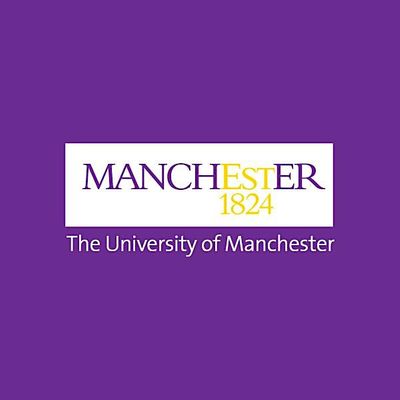
About this Event
Join us for an engaging Workshop on Innovation, Institutional investors & Low-Carbon Transitions by , Head of Alliance Manchester Business School and Professor of Accounting at The University of Manchester.
Agenda
10:00 - 10:30 AM: Registration & Networking..
10:30 - 10:45 AM: Introduction of the University & Professor.
10:45 AM - 11:30 PM: Masterclass by .
11:30 - 11:45 PM: Q&A session
About the workshop:
According to IPCC, achieving climate mitigation targets requires large-scale financial investments to drive low-carbon transitions in electricity, industry, buildings, and transport sectors. Estimates of additional annual investments needed range between 1.38-3.25 trillion USD/year in the 2016-2035 period (IPCC, 2018) to limit change to 1.50C.
The mobilization of financial capital is therefore a major policy and research issue for addressing climate change. The United Nations, International Monetary Fund, Organisation for Economic Co-Operation and Development, European Environment Agency, and the European Commission are exploring the potential role of institutional investors in financing low-carbon transitions.
Because institutional investors manage an estimated $85.7 trillion in assets and their investments tend to be risk-averse and long-term, they are viewed as a source of ‘patient capital’ that is required for low-carbon transitions. While this funding could come through bonds or equity, direct investment in renewable energy projects has also been advocated. Yet, there is concern that finance theory and the practices of institutional investors mean that capital markets act as barriers to low-carbon transitions because they lock investment into existing companies and production-consumption systems and thus stop capital flowing towards new carbon-neutral businesses at the required speed. The European Commission’s High-Level Expert Group on Sustainable Finance concludes that a complete transformation is required in the “entire financial system, its culture and incentives” (ECHLEG, 2018, p.2) to enable new environmental technologies to break through and transform established production-consumption systems.
This masterclass explores how institutional investors are reorienting their portfolios in ways that could lead to low-carbon transitions; the factors facilitating or hindering this transition and the opportunities for financial sector disruptors.
About :
Ken McPhail is the Head of Alliance Manchester Business School and a Professor of Accounting at The University of Manchester. Previously, he served as Deputy Head and Research Director at the school and was Vice Dean for Social Responsibility from 2014 to 2017. In this role, Ken led the University’s social responsibility agenda, working with Manchester City Council and the Joseph Rowntree Foundation. He also initiated the Ethical Grand Challenges program. Prior to Manchester, Ken held leadership roles at La Trobe University in Melbourne and the University of Glasgow. His research focuses on accounting ethics and corporate accountability.
About the University of Manchester
The University of Manchester is a member of the prestigious Russell Group and is one of the UK’s largest single-site universities with more than 40,000 students on campus – including more than 10,000 international students.
The University is consistently ranked among the world’s elite institutions for graduate employability and world-class research across a diverse range of fields including cancer, advanced materials, global inequalities, energy and industrial biotechnology.
According to the QS World University Rankings 2025, The University of Manchester is ranked 34th in the world, 10th in Europe and 6th in the UK.
About The Middle East Centre
The University of Manchester’s Middle East Centre at Dubai Knowledge Park opened in 2006 and is the largest and fastest growing in the University’s international network comprising four hubs in key business cities around the world.
The Centre has supported over 3,400 Part-time MBA and specialist Master’s students in the region and graduated more than 2,300 students. The Centre also works in regional collaborations with a range of industry groups, professional bodies and companies, and supports a regional alumni association with more than 5,000 members in countries across the region.
Programmes offered in the Middle East Centre
Triple Accredited MBA programmes:
- Manchester Global Part-time MBA
- Manchester Global Executive MBA
Other Programmes:
- Part-time MSc Financial Management
- Part-time MA Educational Leadership in Practice
- Executive Education
Accreditation
Our MBA is triple accredited by the AACSB, an accreditation body from the US, the EFMD from Europe and the Association of MBAs, making us a member of the elite group of less than 1% of business schools in the world with the triple accreditation.

Learn more: manchester.ac.ae
Event Venue & Nearby Stays
academy from stc, Street No 24, Riyadh, Saudi Arabia
GBP 0.00








